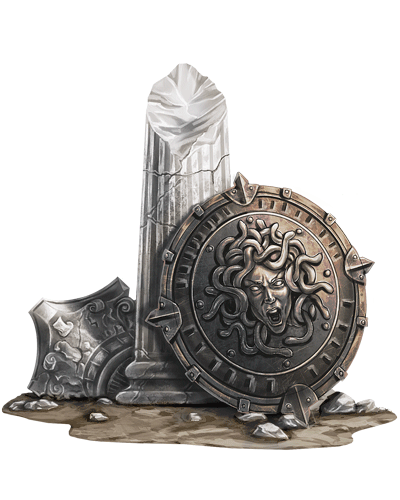
Campaign Builder: Cities & Towns is being edited at the moment. For the curious, here’s a morsel to stave off the hunger.
Magic is the wild card in every fantasy setting. With it, civilizations can replicate the effects of advanced technology and, in many cases, far surpass what technology alone would be able to accomplish. And magic may even work in concert with technology, making something altogether new. Like technology, magic is developed for any number of reasons: convenience, efficiency, utility, war, worship—even aesthetics. Just like technology, it is created to fill a need, and those needs can be as diverse as all the world’s peoples.
When considering the level of magic in your city, think about the needs of the people and the ways magic can and would fill those needs. Even the smallest, most frivolous problem may have a solution in magic, so ask the important question, “Should magic be used here, and if so, how?” There are many obvious answers to this question, and this chapter tackles a few of them, but it also brings to light some not-so-obvious answers.
Prevalence: Magic is Everywhere
In a high-magic setting, we might consider that magic is accessible to anyone at any time or simply that a large portion of public services, like health care, sanitation, transportation, and utilities, are all powered by magic, along with the more minor elements of everyday life. Servants may have access to magic to help with their work. A noble may utilize magic to change their hair color. Laborers may benefit from the local druid’s use of goodberry and some empowered gear. When designing a city or town with a prevalence of magic, consider how the average citizen would use it and how that use would change the everyday functioning of the city. Some of the areas potentially impacted in a high-magic setting are listed below.
Construction. Constructing buildings and roads is a time-consuming process. But in a high-magic setting, one magic wielder can complete in hours what it might take dozens of workers a day or more. Whether the materials are lifted by golems or the stone and wood are sculpted by spells—or a building is simply summoned into being, fully fabricated—magical construction takes but a fraction of the time . . .
Oh, and so many more thoughts on magic in the city yet to come…!

Anyone can use magic at any time, or simply that a significant amount of public services, such as health care, sanitation, transportation, and utilities, as well as the more trivial aspects of daily life, are all powered by magic.
Been building a world for some time and this is always an interesting thought. From using the mythical monsters as part of the infratstructure (gelatinous cube and rust monster for waste disposal or removing evidence for criminals) to entertainment (Bards making use of the many spells to both improve audience reaction but also create light shows, extra instruments) to transport (spent a good part of a game chatting about how unseen servants would have a walkway either above or below the street to transport goods like a postal service or amazon).
Think one of the questions is how mundane can magic be. The assumption for a high magic world that the spells in the rulebooks represent those most commonly used by adventurer/combat-focused types but so many more options would exist. It’s then what limitations might exist.
The spell sending is a great example of this, a message can be sent any distance as long as the caster is familiar with the receiver. What does that actually mean in world terms (game terms is easy for the DM to say yes or no), is knowing someone’s name enough in which case are their sorcerer spam call centres sending to lists of inhabitants about the new deals? Can a sending be blocked by someone. Does the sender know the message has been heard, are they figuratively waiting for the three dots of a text to appear?
Thinking even about construction, if magic can be used to create things would there be the same architecture (gothic structures have as much to do with engineering as their appearance) and would cities have to be built the same way if dangers/trade/travel can come from more than roads and rivers? Further cultural norms might change such as food when freezing or instant transportation is possible.
Honestly I think a lot of fantasy cities would be closer to 21st century cities than medieval or earlier due to the existence of magic.